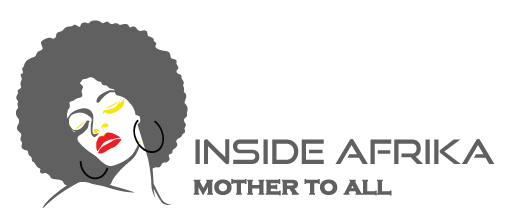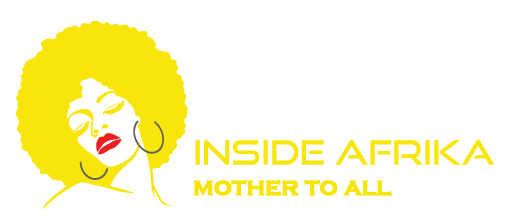Branding itself as the “God mode for the internet”, NA through DDMR, provided its members access to private Facebook photos and Facebook Messenger attachments including tax returns. DataSpii harvested data from millions of Chrome and Firefox users through compromised browser extensions. Jadali, along with journalists from Ars Technica and The Washington Post, interviewed impacted users, including a Washington Post staff member. According to the interviews, the impacted users did not consent to such collection.
- A 2019 book titled The Real Face of Facebook in India, co-authored by the journalists Paranjoy Guha Thakurta and Cyril Sam, alleged that Facebook helped enable and benefited from the rise of Narendra Modi’s Hindu nationalist Bharatiya Janata Party (BJP) in India.
- In a Bahraini uprising that started on February 14, 2011, Facebook was utilized by the Bahraini regime and regime loyalists to identify, capture and prosecute citizens involved in the protests.
- Ahead of the 2019 general elections in India, Facebook has removed 103 pages, groups and accounts on Facebook and Instagram platforms originating from Pakistan.
- Access to Facebook is free of charge, and the company earns most of its money from advertisements on the website.
- The government of the Philippines has also used Facebook as a tool to attack its critics.
Product Engineering
- Users are now able to prevent user-set categories of friends from seeing updates about certain types of activities, including profile changes, Wall posts and newly added friends.
- On October 13, 2020, the Messenger application introduced cross-app messaging with Instagram, which was launched in September 2021.
- The company also earns revenues from developers through payments for virtual or digital products sold through third-party applications.
- Facebook also took no action after BJP politicians made posts accusing Muslims of intentionally spreading COVID-19, an employee said.
- Other companies such as Home Depot, Macy’s, and Walmart are involved as well.
There are ads on Facebook and Instagram containing sexually explicit content, descriptions of graphic violence and content promoting acts of self harm. Many of the ads are for webnovel apps backed by tech giants Bytedance and Tencent. In October 2020, Pakistani Prime Minister Imran Khan urged Mark Zuckerberg, through a letter posted on government’s Twitter account, to ban Islamophobic content on Facebook, warning that it encouraged extremism and violence. In July 2018, it stated that it would “downrank” articles that its fact-checkers determined to be false, and remove misinformation that incited violence.
It also saw low user engagement and quality issues with its metaverse applications. The presence of hate speech centering on the murder of George Floyd, misinformation about COVID-19, and conspiracies about the 2020 U.S. presidential election on Facebook triggered employees to continue to challenge company policies, but Facebook still faced little consequence from lawmakers. Zuckerberg himself, though initially apologetic, began to shift the way he approached Facebook’s fact-checking policies. Joe Biden’s administration’s push to “censor” information related to COVID-19. In 2006 Facebook opened its membership beyond students to anyone over the age of 13.
Advance slides automatically for a published presentation
The feature is called App Lock and is a part of several changes in Messenger regarding privacy and security. On October 13, 2020, the Messenger application introduced cross-app messaging with Instagram, which was launched in September 2021. In addition to the integrated messaging, the application announced the introduction of a new logo, which will be an amalgamation of the Messenger and Instagram logo.
What are my payment options to file the Articles of Organization online?
As of July 2025update, Facebook ranked as the third-most-visited website in the world, with 23% of its traffic coming from the United States. We’re doing our best to make sure our content is useful, accurate and safe.If by any chance you spot an inappropriate comment while navigating through our website please use this form to let us know, and we’ll take care of it shortly. It is evident that love, kindness, and admiration are powerful emotions that can counteract feelings of hate, bitterness, and disdain.
A January 2024 study by Consumer Reports found that among a self-selected group of volunteer participants, each user is monitored or tracked by over two thousand companies on average. LiveRamp, a San Francisco-based data broker, is responsible for 96 per cent of the data. Other companies such as Home Depot, Macy’s, and Walmart are involved as well. On November 29, 2011, Facebook settled Federal Trade Commission charges that it deceived consumers by failing to keep privacy promises.
Present with notes, auto-advance slides & more
The site’s primary color is blue as Zuckerberg is red–green colorblind, a realization that occurred after a test taken around 2007. Facebook was initially built using PHP, a popular scripting language designed for web development. PHP was used to create dynamic content and manage data on the server side of the Facebook application. Zuckerberg and co-founders chose PHP for its simplicity and ease of use, which allowed them to quickly develop and deploy the initial version of Facebook. As Facebook grew in user base and functionality, the company encountered scalability and performance challenges with PHP.
Add speaker notes—Use speaker notes to keep track of your talking points for each slide. When you first create a presentation, you can choose a theme for your slides. Your presentation’s layout is the way your text and images are arranged on a slide. However, as of October 2022, Meta had incurred $13.7 billion in total losses that year on metaverse development.
Facebook stated that content that receives “false” ratings from its fact-checkers can be demonetized and suffer dramatically reduced distribution. Specific posts and videos that violate community standards can be removed on Facebook. In May 2019, Facebook banned a number of “dangerous” commentators from its platform, including Alex Jones, Louis Farrakhan, Milo Yiannopoulos, Paul Joseph Watson, Paul Nehlen, David Duke, and Laura Loomer, for allegedly engaging in “violence and hate”. In 2017, Facebook partnered with fact checkers from the Poynter Institute’s international fact-checking network to identify and mark false content, though most ads from political candidates are exempt from this program.
Facebook has been criticized for allowing users to publish illegal or offensive material. Specifics include copyright and intellectual property infringement, hate speech, incitement of rape and terrorism, fake news, and crimes, murders, and livestreaming violent incidents. Commentators have accused Facebook https://traderoom.info/finmax-overview/ of willingly facilitating the spread of such content. A 2022 Amnesty International report showed that Facebook had promoted articles and content that had led to the deadly genocide of the Rohyingya people, a tragedy that occurred in Myanmar in 2017.
A commentator in The Washington Post noted in 2019 that Facebook constitutes a “massive depository of information that documents both our reactions to events and our evolving customs with a scope and immediacy of which earlier historians could only dream”. Especially for anthropologists, social researchers, and social historians—and subject to proper preservation and curation—the website “will preserve images of our lives that are vastly crisper and more nuanced than any ancestry record in existence”. Its most prominent case addressed allegations that Zuckerberg broke an oral contract with Cameron Winklevoss, Tyler Winklevoss, and Divya Narendra to build the then-named “HarvardConnection” social network in 2004. In 2020, Facebook executives overrode their employees’ recommendations that the BJP politician T. Raja Singh should be banned from the site for hate speech and rhetoric that could lead to violence. Singh had said on Facebook that Rohingya Muslim immigrants should be shot and had threatened to destroy mosques.
Business Development & Partnerships
In 2019, British solicitors representing a bullied Syrian schoolboy, sued Facebook over false claims. They claimed that Facebook protected prominent figures from scrutiny instead of removing content that violates its rules and that the special treatment was financially driven. The suits also assert that in acquiring these products, they weakened their privacy measures for their users. The suits, besides other fines, seek to unwind the acquisitions from Facebook.
Facebook investigations revealed that Archimedes had spent some $1.1 million ($1.35 million in 2024 dollars) on fake ads, paid for in Brazilian reais, Israeli shekels and US dollars. Facebook gave examples of Archimedes Group political interference in Nigeria, Senegal, Togo, Angola, Niger and Tunisia. The Atlantic Council’s Digital Forensic Research Lab said in a report that “The tactics employed by Archimedes Group, a private company, closely resemble the types of information warfare tactics often used by governments, and the Kremlin in particular.” In April 2021, The Guardian reported approximately half a billion users’ data had been stolen including birthdates and phone numbers. In September 2024, Meta paid a $101 million fine for storing up to 600 million passwords of Facebook and Instagram users in plain text. The practice was initially discovered in 2019, though reports indicate passwords were stored in plain text since 2012.
As of 2018, Facebook had over 40 fact-checking partners across the world, including The Weekly Standard. Critics of the program have accused Facebook of not doing enough to remove false information from its website. The government of the Philippines has also used Facebook as a tool to attack its critics.
By 2009 developers generated about $500 million in revenue for themselves through Facebook. The company also earns revenues from developers through payments for virtual or digital products sold through third-party applications. By 2011 payments from one such company, Zynga Inc., an online game developer, accounted for 12 percent of the company’s revenues. Harvard students who signed up for the service could post photographs of themselves and personal information about their lives, such as their class schedules and clubs they belonged to.








